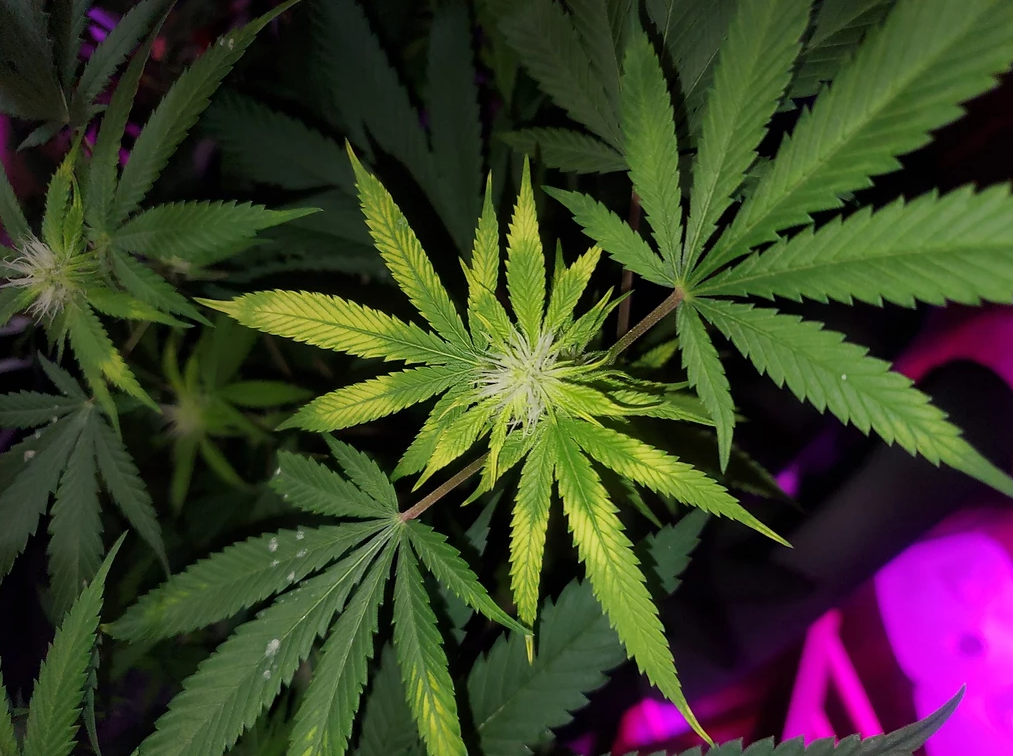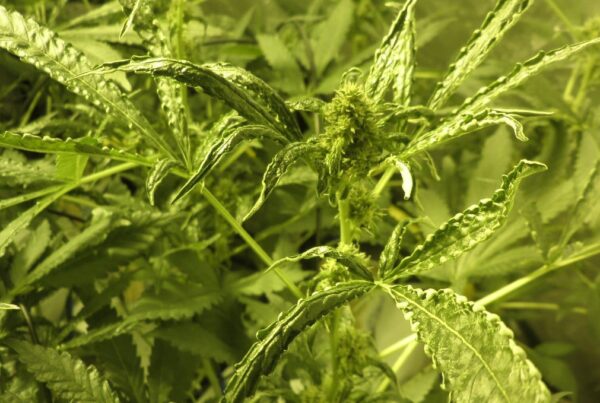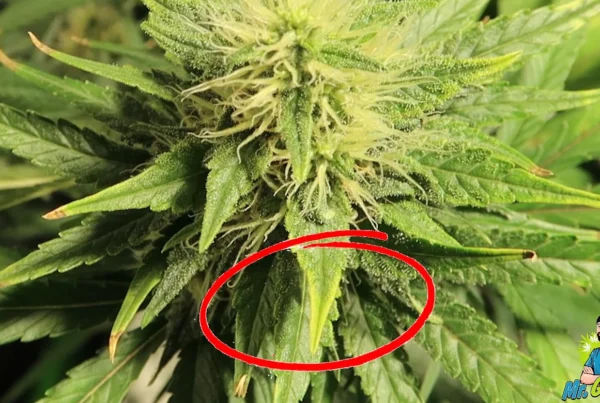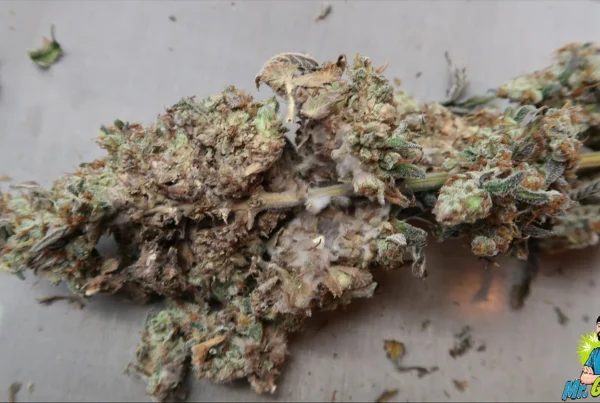Recognizing and fixing nutrient deficiencies is crucial for the success of your crop and today we’re going to talk about a unique one; zinc deficiency in cannabis.
But don’t worry, it’s easily fixable once you know what to look for. This article is here to give you practical tips and advice to quickly get your plants back to health.
Zinc plays an important role in your cannabis plants’ growth, even though they need it in small amounts.
If your plants are lacking zinc, their growth and overall health will be negatively impacted. By learning about zinc’s role and how to spot a deficiency, you can act fast to correct the problem.
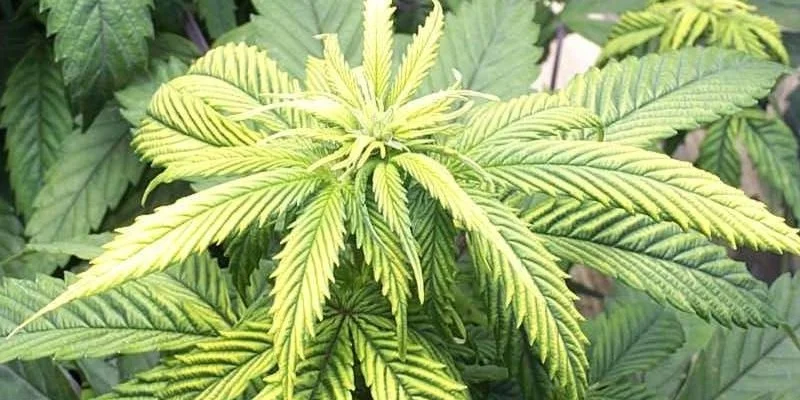
Functions of Zinc in Cannabis Plants
Before you jump in to make a diagnosis, it is critical to understand the function of zinc in cannabis plants. Zinc is a micronutrient which means that the plant requires it in trace amount, but its deficiency can still manifest itself in form of many detrimental problems.
This immobile nutrient is important for the formation of chlorophyll, a substance that is crucial for photosynthesis. It is also required for protein synthesis, building and conversion of starch to sugars. Zinc helps the plant withstand colder weather.
It is also required for enzyme production and regulation. But most importantly, it is required for a growth hormone called ‘auxin’. As a result of zinc deficiency, the plant including its leaves and stems will not be able to grow properly. Resolving zinc deficiency is the way to fix stunted growth in your cannabis plant.
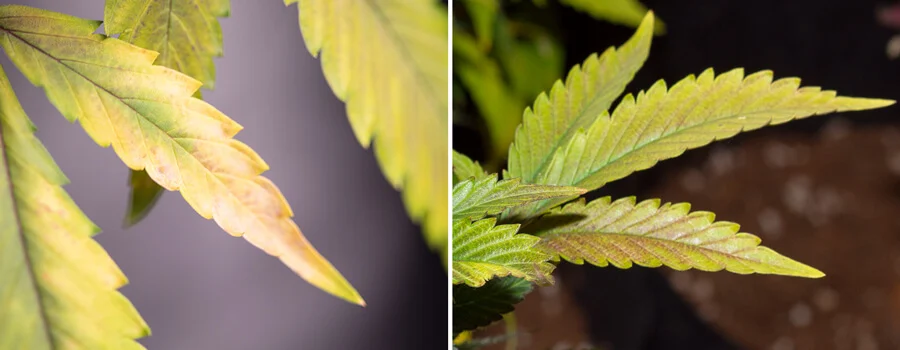
Signs of Zinc Deficiency in Cannabis Plants
Zinc is an immobile nutrient which ultimately means that any signs of its deficiency will first show up in the new growth since the plant cannot relocate the nutrient to the parts where it is needed.
I always recommend checking your nutrient and pH levels with a TDS and pH meter before coming to a conclusion about zinc deficiency.
If you are overfeeding, or your pH is out of wack, it could be causing a nutrient lockout and you could misdiagnose it as a zinc deficiency.
Here are a few signs of zinc deficiency that you should look for:
- Chlorosis or Discoloration: One major symptom of zinc deficiency is chlorosis or yellowing of leaves. It starts with the edges of the leaves turning yellow and then it spreads to the center. You will also notice interveinal yellowing which means discoloration between the veins of the leaves. Leaf tips will have rusty necrotic spots and they will appear burnt. New leaves will also appear to thinner and smaller in size and curl under. Chlorosis will be present in both new and old leaves.
- Growth: Zinc is a key element in a hormone that is required for the proper growth of a cannabis plant. With zinc deficiency, your plant will have stunted growth. The internodal distance which is the space between two nodes will shorten. Branches will appear closer and bunched up. The plant may also stop growing vertically altogether.
- Buds: Zinc deficiency can also affect the buds in the flowering stage. The buds will not become dense. The airy and light buds will have slow growth which can affect the potency of the buds and overall yield.
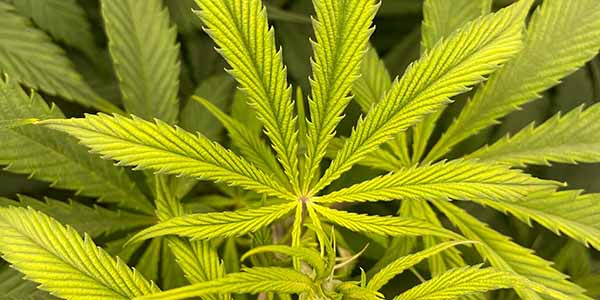
Treatment of Zinc Deficiency in Cannabis Plants
If your suffering from a cannabis zinc deficiency it will affect plant development and overall growth, as well as your yields. If your plant is deficient in zinc, you want to start addressing the issue immediately. Sometimes, zinc deficiency can be triggered by stress and goes away once the trigger is eliminated but other times you just need more zinc.
Here are a few steps that you can take to treat zinc deficiency in cannabis plants:
- Adjust pH levels: One main reason for zinc deficiency is the high pH of the growing medium which can result in zinc lockout. The plant will not be able to absorb zinc even if it is present since the root environment is too alkaline. To fix this problem, you should take steps to adjust pH to correct levels that are:
- 5.5 to 6.5 pH is optimal for the absorption of zinc in soil.
- 5 to 6.0 pH is ideal for absorption of zinc in a hydro or soilless medium.
To restore pH to the correct range, flush the whole system with pH balanced water. This will not only restore the pH but also eliminate any salts which affect the absorption of nutrients by the roots. It will also help get rid of any stale water and help your cannabis plant bounce back.
- Add Zinc: If you use reverse osmosis (RO) water for feeding, it is possible that the water does not have enough zinc in it for the plant. Try watering your plant with tap water that is not heavily filtered. If you must use reverse osmosis water, then you can use Cal-mag supplements to eliminate the chances of zinc deficiency. In case you decide to add zinc, use zinc sulfate, zinc oxide, or chelated zinc. Growers use chelated zinc to ensure that the cannabis plant can absorb the zinc.
- Avoid Overwatering: Overwatering can also lead to zinc deficiency. Make sure that you are not overwatering the plant as it can cause root problems and lead to nutrient lockout. Adopt proper watering practices to fix and avoid this issue.
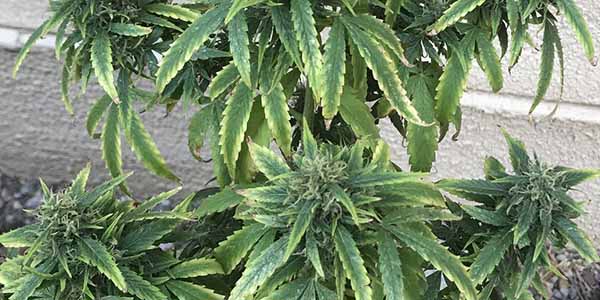
Since zinc is an immobile element, you will not see signs of recovery right away with the treatment, but you will notice a difference in the new growth.
The difference is more visible in the vegetative state when cannabis plants grow rapidly.
You will see that leaves are not reluctant to open up and are no longer showing any signs of deformity.
Yet, the damage in older growth is irreversible and cannot be fixed with treatment.
Prevention
Zinc deficiency is not fun to deal with, and it is better to be proactive and avoid this problem in the first place. In order to prevent zinc deficiency, the key is to monitor your plant closely to notice any changes in growth early on. This also helps catch numerous problems before they get worse.
You can also make sure that the nutrients you’re using have a solid amount of zinc in them.
Keeping the pH levels in check will reduce the chances of your plant becoming deficient in zinc. Start with good quality soil and use cannabis-friendly nutrients to keep your plant healthy and eliminate any factor that can trigger stress in your cannabis plants.
With these best practices and treatment methods, you can keep cannabis deficiencies at bay and make your way towards the harvest that you expect.
![]()

